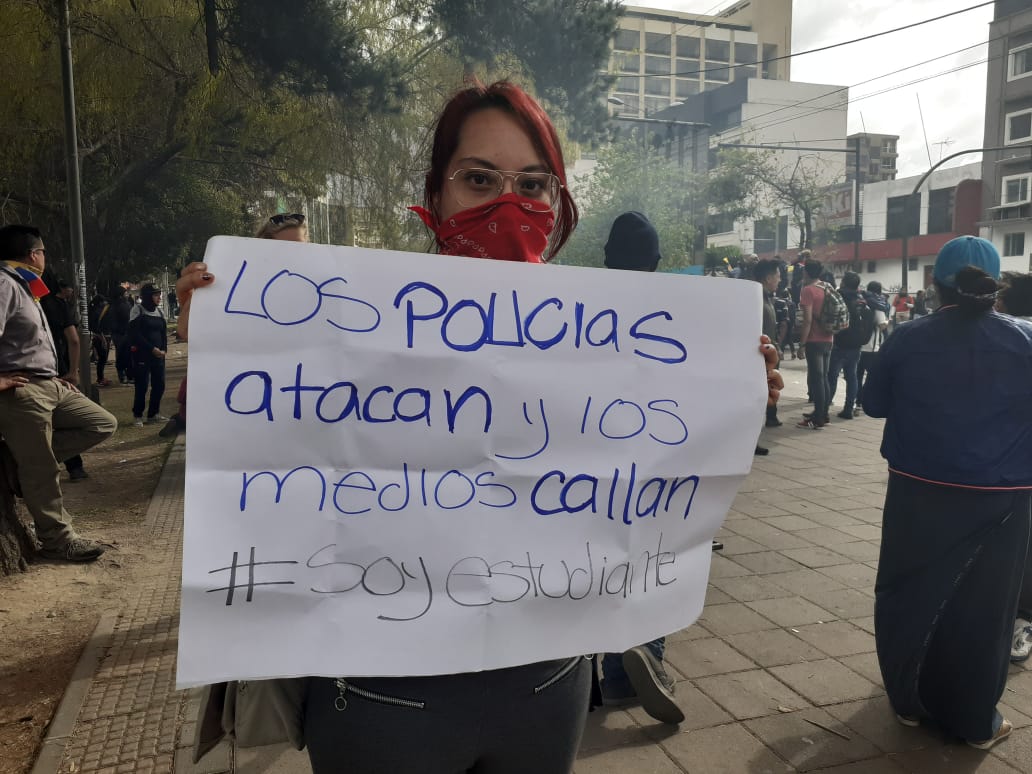
Ecuador’s government declared a “state of exception” Oct. 3 after protesters opposed to a fuel price hike blocked streets and disrupted transport nationwide. A national paro, or general strike, was called after President Lenín Moreno announced his decision to end a 40-year-old subsidy for fuel—widely perceived as a move taken in response to belt-tightening demands made by the International Monetary Fund (IMF) following a recent $4.2 billion loan package. At least 350 have been arrested in the “paquetazo” protests, whch have been led by transport unions, indigenous organizations and student groups. (TeleSur, Al Jazeera, NPR, BBC News)
Global oil prices remain low, but several countries around the world have seen exploisions of protest over domestic fuel price spikes in recent months.
Photo via Twitter





Ecuador government evacuates capital
Protesters paraded 10 captive police officers on a stage at the Casa de la Cultura, a social center they had occupied in Quito on Oct. 11. Protesters initially held the officers to press their demand for revocation of Decree 883, which eliminates fuel subsidies. The officers were finally turned over to UN personnel following intercession of the indigenous alliance CONAIE. Protesters are also demanding an investigation into the killing of at least five so far in the demonstrations. Before being freed, some of the officers were forced to carry the coffin of an indigenous activist allegedly killed during the protests. A curfew has now been imposed in central Quito, and the government has relocated to Guayaquil in response to the unrest. (Al Jazeera, AP, BBC News, CNN, El Comercio, Quito)